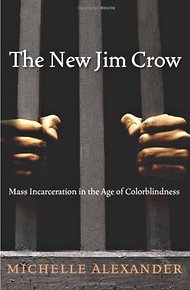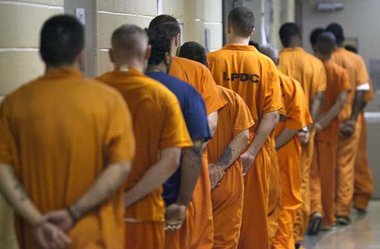Intentional Bias in North Carolina
Share
Explore Our Galleries
Breaking News!
Today's news and culture by Black and other reporters in the Black and mainstream media.
Ways to Support ABHM?
From the New York Times
A North Carolina trial judge recently resentenced three death-row inmates to life without parole under the state’s Racial Justice Act, which allows inmates to have their sentences reduced if it can be shown they were tainted by racial bias.
In the trials of two blacks and one Lumbee Indian, the judge found “powerful evidence”of such bias.
The law does not require proof that the bias was deliberate. But, in this case, the judge found “intentional” prosecutorial bias aimed at securing a death sentence for the defendants, bringing grave “harm to African-Americans and to the integrity of the justice system.”
The bias was manifested in the prosecutors’ use of peremptory strikes of prospective jurors during the jury selection process. In one case, the prosecutor struck prospective blacks at two times the rate for whites. In each of the other two cases, the rate was almost four times greater. Even when adjustments were made for other factors, like the criminal record of a prospective juror, race was “a significant factor” in the rigorous ways that the North Carolina statute required the defendants to prove.
The judge found that words and deed of the prosecutors themselves confirmed his conclusions about racial influence in the jury selection process.
In one case, the prosecutor compiled pages of notes called “Jury Strikes” to help guide him as he challenged prospective jurors. The judge concluded from the notes that any blacks summoned for jury duty “had a strike against them before they even entered the courthouse.”
A prospective black juror with no criminal record was struck because she was said to live in a “bad area,” whereas a white juror who had been a marijuana dealer was picked in part because he was a “fine guy.”
The judge observed that the injustice abundantly proven in each case was common throughout North Carolina during the past two decades. Prosecutors excluded blacks from juries for going to church too often or for other reasons that “simply make no sense” and that could be explained only by intentional and ugly bias.













Comments Are Welcome
Note: We moderate submissions in order to create a space for meaningful dialogue, a space where museum visitors – adults and youth –– can exchange informed, thoughtful, and relevant comments that add value to our exhibits.
Racial slurs, personal attacks, obscenity, profanity, and SHOUTING do not meet the above standard. Such comments are posted in the exhibit Hateful Speech. Commercial promotions, impersonations, and incoherent comments likewise fail to meet our goals, so will not be posted. Submissions longer than 120 words will be shortened.
See our full Comments Policy here.